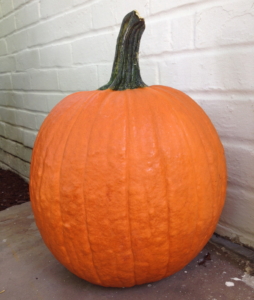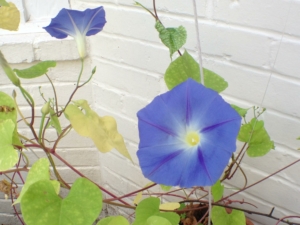
I saw this pumpkin at the grocery store and I had to have it. It called to me. So I bought it and brought it home and stood it on the stoop. I heard myself think, “But I don’t want to carve it. I like it like this.” Then I heard myself think, “There’s a poem there.”
Here it is:
My Pumpkin
I don’t want to carve my pumpkin.
I don’t want to give it a grin.
I like my pumpkin like it is.
I like its smooth orange skin.
I like that it’s a little tall.
I like its hollow thump.
I like its tiny tree-trunk stem.
I like its warty bump.
Of all the pumpkins in the pile,
this one said “Pick me!”
I don’t want to carve my pumpkin.
I want to let it be.
I’m still thinking about the last line. Do kids say “Let it be?” Do they know what it means?
For more Poetry Friday, visit Amy at The Poem Farm.
(c) 2013, Elizabeth Steinglass, all rights reserved




